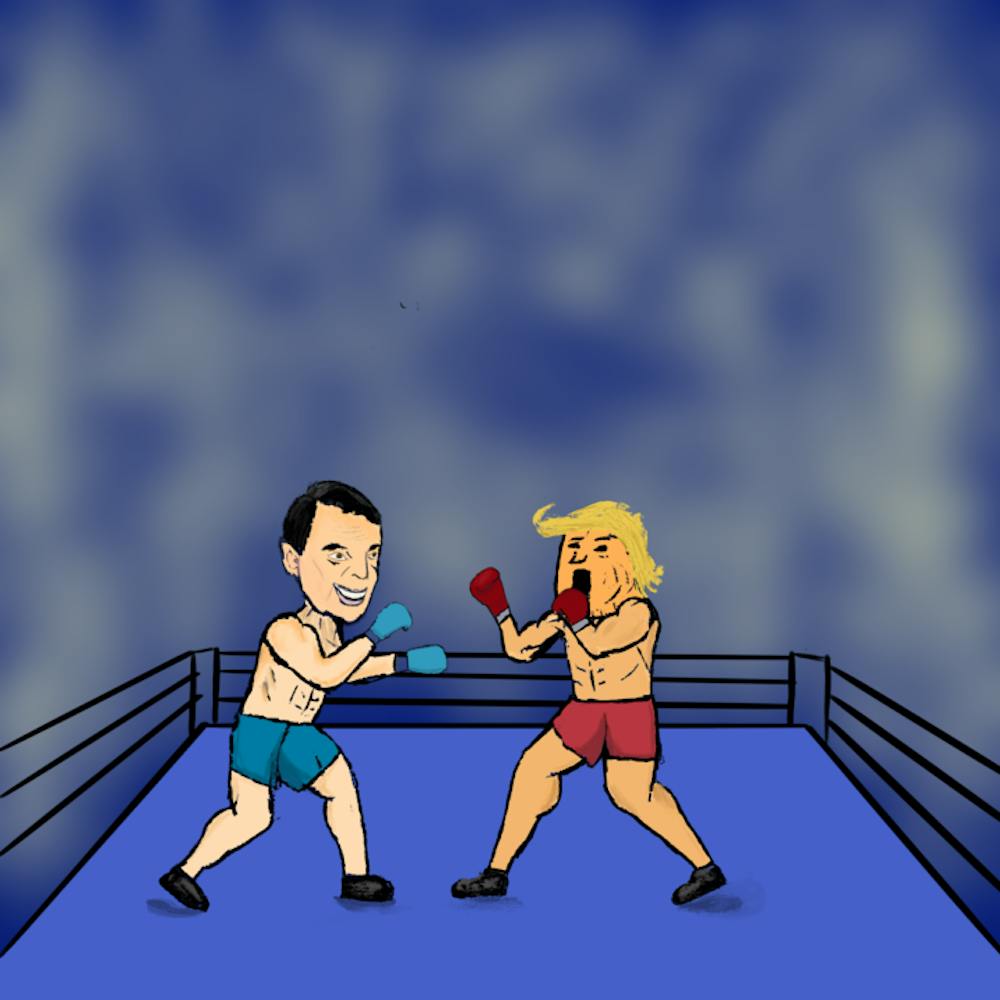On Feb. 10, President Ronald J. Daniels announced that Hopkins joined several universities and higher education groups in a federal lawsuit against the National Institutes of Health (NIH) in response to the NIH limiting indirect research costs to 15% of grant funding. Indirect costs are a percentage of grant money that is paid by the NIH to institutions conducting research (i.e. Hopkins) for facilities, equipment, administrative support and IT infrastructure costs. As of 2023, Hopkins had negotiated an indirect cost rate of over 60%, and such a dramatic reduction would undoubtedly stall the clinical trials and research at the University.
In an email to the Hopkins community, Daniels and Johns Hopkins Medicine CEO Theodore DeWeese made it clear that the “abrupt and sweeping” cuts to NIH funding posed a significant challenge to the clinical and research efforts of the University.
The Editorial Board applauds this step by the University to protect the work done by its students, faculty and staff, and vocally oppose efforts by the Trump administration to cut costs at the expense of research and science.
Research funding cuts are not the only action of the Trump administration that hinders the work of the University. In an alarming and unprecedented move, the Trump administration is attempting to dramatically cut the United States Agency for International Development (USAID), reducing its staff from over 10,000 globally to just 294. This move — which a federal judge ruled must be paused until at least Feb. 21 — threatens to dismantle critical global health and development initiatives, including Hopkins programs that receive USAID funding like Jhpiego’s global health programs.
The Trump administration has also made no secret of its disdain for higher education in particular.
On Friday, the administration sent a Dear Colleague letter to all educational institutions receiving federal funding and stated that “educational institutions have toxically indoctrinated students with the false premise that the United States is built upon ‘systemic and structural racism.’” The letter argued that diversity, equity and inclusion programs were ways for educational institutes to inject racist stereotypes and “explicit race-consciousness” into training and practices. On Monday Feb. 17, Trump’s Department of Education canceled over $600 million in grants focused on training teachers on “inappropriate and unnecessary topics” like critical race theory, antiracism and social activism.
Make no mistake. The Trump administration is targeting higher education and demonizing institutions like Hopkins, as they pursue their core mission of inquiry, discovery and care to the world. Attacks on biomedical research and public health initiatives, and attacks on the teaching of diverse literature and the history of racism, are fundamentally attacks on the University space.
During the first Trump administration, Hopkins demonstrated its willingness to stand up for its values. The University defended undocumented students through its support for Deferred Action for Childhood Arrivals, sued the administration to protect international students’ visas during the COVID-19 pandemic and publicly opposed the so-called “Muslim Ban.”
Now, again, Hopkins must continue to oppose attempts by the Trump administration to limit its research, academic and service mission, and defend the work done by its students and staff. Lives are at stake when cancer research funding is cut or when programs that treat infectious diseases in Africa are halted.
Moreover, the administration should not concentrate its advocacy only on the work for which the University is known: medicine, public health and the Applied Physics Laboratory. The free academic spirit of higher education will be damaged if there are attempts to restrict the humanities and academic freedom, and the humanities too deserve an equally vigorous defense. Many notable works of literature from 1984 to Brave New World can and have been characterized as “left-wing” and banned for their political and social themes. The Trump administration should not be given carte blanche to decide what students can or cannot learn.
It cannot be ignored that some Americans have concerns with the perceived elitism concentrated in the ivory towers of academia or scientific research. There is a place for a genuine critique of academic institutions, but Trump is exploiting those concerns to limit these efforts while purposefully ignoring all the good done by free academic pursuit and research.
The political situation is shifting every day, with policies being implemented then reversed or statements being made then walked back, and we understand the University’s desire to wait until policies solidify to pursue legal or political action. But, the University ought to not wait too long that its silence becomes complicity in the dismantling of higher education.
Hopkins depends on federal funding and would undoubtedly suffer from Trump’s wrath. We are not saying Hopkins should not comply with federal law, but the University should actively challenge harmful policies and defend itself and the Hopkins community. If the Trump administration’s attacks on higher education and public health go unchallenged, the consequences will be devastating and cataclysmic.





